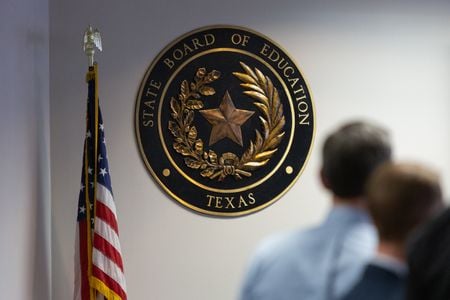A group of nine educators approached the board of education on June 15 with a proposal to rename slavery as involuntary relocation in second grade classrooms.
A proposal to teach slavery to second graders in Texas as ‘involuntary relocation’ has been struck down in a unanimous decision by the State Board of Education.
The proposal was put together by a group of nine educators including a professor at the University of Texas Rio Grande Valley, according to the Texas Tribune who initially reported on the story.
Every decade, the state board considers new policy on how students are being taught—but can approve or deny proposals based on votes.
The June 15 meeting lasted 15 hours and the introduced proposal would directly impact the second grade social studies classes in Texas’ 8,866 public schools.
Senate Bill 3 was released last year as an answer to Critical Race Theory, which is taught on the collegiate level and has to do with racism as a social construct that continues to impact institutions today—since racism continues to prevail.
The bill speaks to how race—specifically slavery is taught in Texas. Unallowed to be referenced as part of the founding of the U.S., slavery is to be touched on, as a ‘deviation from American values.’
Neil Shanks, clinical assistant professor of middle and secondary education at Baylor University told The Hill that involuntary relocation isn’t an unknown term in social studies—“(it) has relationships to refugees and forced displacement due to violence or ethnic cleansing,” he said.
In reference to the proposal submitted by the group of nine educators, Shanks added, the term appeared to be “intended to water down the issue of slavery.”
The State Board of Education for Texas took to Twitter to talk about their initial denial of the proposal, and the term involuntary relocation, specifically.
Annette Gordon-Reed, a history professor at Harvard University spoke to the Tribune about the term and expressed her concerns about the obstruction of the accuracy of what occurred during slavery.
“Young kids can grasp the concept of slavery and being kidnapped into it,” Gordon-Reed said. “The African slave trade is unlike anything that had or has happened, the numbers and distance.”
In 2015, a textbook publisher in Texas came under fire over one of its geography textbooks, which referred to slaves in America as “workers.”
Aicha Davis, a Democrat representing Dallas and Fort Worth said the language in the proposal isn’t a fair representation of the history of slavery in America. “I can’t say what their intention was, but that’s not going to be acceptable,” she told the Tribune.
The Houston Federation of Teachers president shares Davis’ sentiments and told ABC13, “Here we go with another attempt to whitewash the truth,” said Jackie Anderson. “There is no way that slavery could actually be called involuntary relocation and get the same meaning as what true slavery is.”
